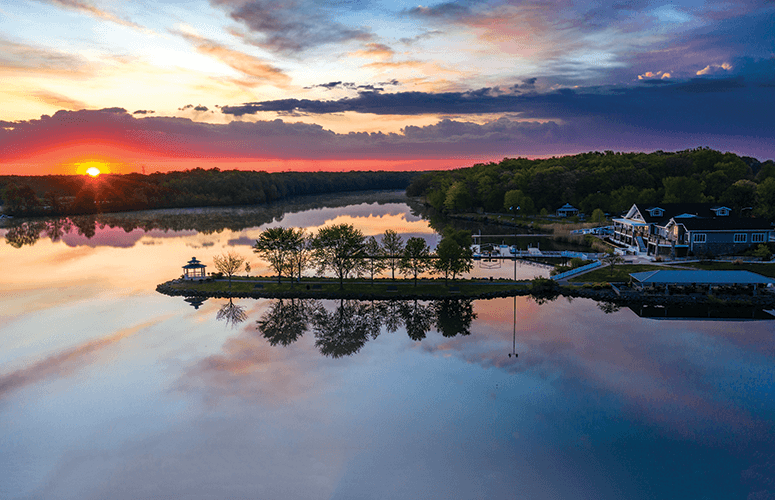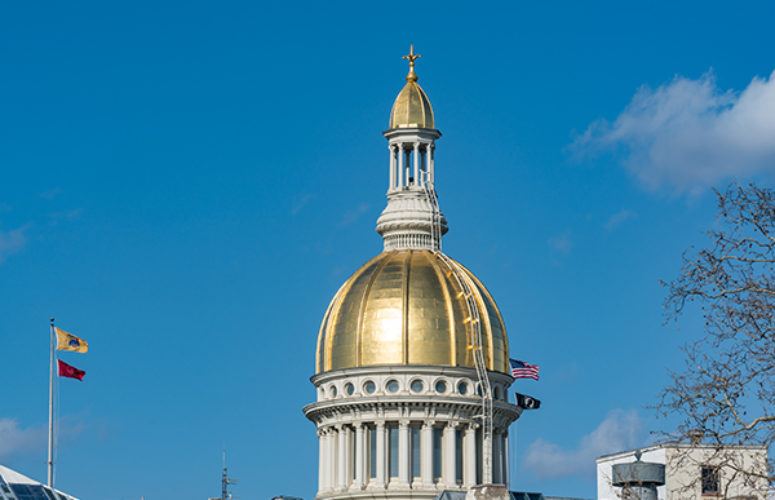
Mercer County Marvels
THE “CAPITAL COUNTY,” LOCATED IN THE CENTER OF THE STATE, BOASTS NEW DEVELOPMENTS AND OPPORTUNITIES FOR BUSINESSES AND RESIDENTS.
By LISA GOULIAN TWISTE, Contributing Writer On Mar 6, 2024Located midway between Manhattan and Philadelphia in the heart of central New Jersey, Mercer County comprises almost 230 square miles of diverse communities – from modern and commercial to rural and agricultural – and is defined by its two most famous municipalities: the government seat of Trenton and the educational hub of Princeton. Mercer’s combination of bustling neighborhoods, culture and education have long attracted businesses and families to the area, but the “Capital County” has more recently become a center of scientific development, particularly in the area of biotechnology and pharmaceuticals.
“The healthcare/pharmaceutical industry is crucial to our local and New Jersey’s economy,” says Hal English, president and CEO of the Princeton Mercer Regional Chamber of Commerce. “They significantly contribute to job creation, economic growth, and research and development, creating not only hundreds of direct jobs, but hundreds of spinoff jobs serving the industry as well.”
Princeton, whose highly regarded public education system and chic downtown often puts it high on the list of best places to live in New Jersey, has attracted a number of international pharma companies in the last few years to shore up New Jersey’s reputation as “The Medicine Chest of the World.”
In the spring of 2022, China-based Jiangsu Hengrui Pharmaceuticals opened Biotechnology with a goal to deliver innovative medicines that are “available, accessible and affordable to more people around the world.”
In 2023, German biotech company ITM Isotope Technologies also announced it was opening a
Princeton headquarters. This was followed in July by Japan-based Kyowa Kirin Co., which combined two New Jersey locations into one space at 510 Carnegie Center.
Also enhancing Princeton’s status as a hot spot for scientific innovation is a plan announced in December by Gov. Phil Murphy and Princeton University President Christopher Eisgruber to establish a center for artificial intelligence (AI) activity in collaboration with the New Jersey Economic Development Authority (NJEDA). “The initiative will bring together AI researchers, industry leaders, start-up companies, and other collaborators to advance research and development, house dedicated accelerator space, advance the use of ethical AI for positive societal impact, and promote workforce development to support new technology development,” says Anthony Carabelli, Jr., director of the Mercer County Office of Economic Development.
Further, Princeton University is moving toward completion of its 74-acre West Windsor Lake Campus, which will expand the institution onto land parcels directly across Lake Carnegie from the main campus, offering sustainability-minded housing, recreation, and athletic facilities. The Lake Campus joins the university’s East Campus development, also under construction, as part of the institution’s goal to provide necessary spaces for living, teaching, and research.
Other Developments in Mercer County
In terms of job growth, Mercer County continues to increase its stake in life sciences and technology, with more than 6,000 jobs created over the last 10 years and no significant industry downturn during the pandemic. Also on the rise are the transportation and warehousing industries, which have seen nearly 9,000 jobs created – administrative careers (7,500 new
jobs) and professional and technical services (2,300 new jobs).
Additionally, Mercer County continues to expand in the healthcare industry, as the last two years have seen Philadelphia-based Rothman Orthopedic Institute add a Hamilton location and Robert Wood Johnson University Hospital cut the ribbon on newly renovated medical oncology exam rooms at its Hamilton-based cancer center.
“The event marked the final stage of a six-year renovation plan, including the construction of a new radiation oncology suite, updates to the infusion center, and a high-tech makeover for the conference room and main lobby,” Carabelli says.
Trenton Growing as a Residential Market
Unlike some of New Jersey’s other major urban areas, Trenton has been experiencing an increase in population – 7% between 2010 and 2020, according to census data – making it the state’s 10th largest city. Yet, the remote work environment, exacerbated by the COVID-19 pandemic, continues to hurt downtown businesses as state government employees, the largest base in the city, are only required to be in the office three days a week – resulting in a 40% decrease in activity.
In an effort to help, Greater Trenton, a non-profit group formed to advance the city’s economic revitalization, commissioned a residential market study in 2023 to validate the depth and breadth of the greater downtown market and understand the impact COVID had on residential demand. This data can be used to spur residential development in the area and, in particular, Trenton’s downtown area.
“Rather than dispersing people across seven-and-half square miles, we know it would be much more impactful to have people concentrated in the downtown core,” says Greater Trenton CEO George Sowa.
He says there are a number of downtown buildings being converted into housing, including the former Bell Telephone Building, which will provide 100 new residential units; the Van Sciver Building, originally a furniture retailer (120 new units); and 240 West State Street, originally a hotel (170 new units). In addition, other downtown redevelopment opportunities include the conversion of a derelict parking garage as well as a 200,000-plus-square-foot former state taxation building.
Trenton may also finally be seeing progress on the Waterfront Reclamation and Redevelopment Project (WRRP), whose purpose is to reconnect the city to five-and-a-half miles of waterfront on the Delaware River. This involves converting busy Route 29 to a lower-speed limit “urban boulevard,” promoting sustainable development, new opportunities for bicycle and pedestrian routes and a much-needed civic space for city residents.
In August, Trenton Mayor Reed Gusciora announced the project had received a $1-million grant from the Delaware Valley Regional Planning Commission that includes redesigning the highway – allowing it to bow out to recapture more waterfront.
Gusciora also emphasized opportunities WRRP would create, saying, “We can bring in market housing, but also a lot of commercial activity that could be a great entertainment district that would enhance both Trenton Thunder Ballpark and Cooper’s Riverview.”
Trenton is also one of three New Jersey cities (Paterson and Atlantic City being the other two) designated by the state as Government Restricted Municipalities (GRMs), which means they receive the highest level of benefits for the least amount of
investment. For example, under the New Jersey Economic Recovery Act, in most towns a building owner needs to have a minimum of 20% equity in order to receive tax credits whereas in the GRM towns, that number is 10%.
According to Sowa, “It truly is smart growth to offer the highest levels of incentives to developers interested in working in GRM cities to ensure those cities have the best chance to make advances.”
Finally, Greater Trenton has received a grant for its innovative “Restore, Loan to Own” pilot program, whose goal is to initially restore 10 city-owned properties concentrated within a two-block area and put residents on the path to home ownership.
“There’s a tremendous disparity in home ownership in Trenton, and this would allow participants to pay rent at or below current rents and own the property free and clear of debt at the end of the lease,” Sowa says. “The program will also utilize local contractors to renovate the structures. Because the properties are concentrated in the same area, we will get benefits of scale and truly be able to impact neighborhoods.”
To access more business news, visit NJB News Now.
Related Articles:





